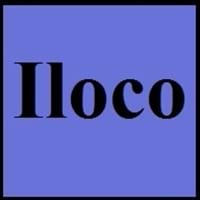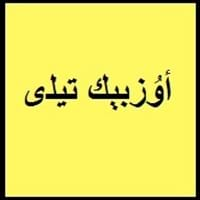Ilocano and Uzbek
Countries
Philippines
Turkey, Uzbekistan
National Language
Philippines
Afganistan, China, Kazakhstan, Kyrgyzstan, Russia, Tajikistan, Turkmenistan, Uzbekistan
Second Language
Not spoken in any of the countries
Not spoken in any of the countries
Speaking Continents
Asia
Middle East
Minority Language
Not spoken in any of the countries
Not spoken in any of the countries
Regulated By
Commission on the Filipino Language
Not Available
Interesting Facts
- Ilocano was originally written with Baybayin syllabary, then gradually it was replaced by Latin alphabet.
- Northwest Luzon is the original Ilocano homeland.
- Uzbek is officially written in the Latin script, but many people still use Cyrillic script.
- In Uzbek language, there are many loanwords from Russian, Arabic and Persian.
Similar To
Tagalog, Indonesian and Malaysian Languages
Kazakh and Uyghur Languages
Derived From
Not Available
Not Available
Alphabets in
Ilocano-Alphabets.jpg#200
Uzbek-Alphabets.jpg#200
Scripts
Ilokano Braille, Latin
Arabic, Cyrillic, Latin
Writing Direction
Not Available
Not Available
Time Taken to Learn
Not Available
Thank You
Agyamanak
Rakhmat
How Are You?
Kumusta?
Qalay siz?
Good Night
Naimbag a rabii
Hayirli tun
Good Evening
Naimbag a sardam
Hayirli kech
Good Afternoon
Naimbag a malem
Hayirli kun
Good Morning
Naimbag a bigat
Hayirli tong
Please
Not available
Iltimos
Sorry
Agpakawanak
Kechiring!
I Love You
Ayayatenka
Sizni sevaman
Excuse Me
Maawan-dayawen
Iltimos! Menga qarang
Dialect 1
Balangao
Tashkent
Where They Speak
Philippines
Not Available
How Many People Speak
Not Available
Where They Speak
Philippines
Not Available
How Many People Speak
Not Available
Dialect 3
Not present
Ferghana
Where They Speak
Not present
Not Available
Native Name
ilokano
أۇزبېك ﺗﻴﻠی o'zbek tili ўзбек тили (o‘zbek tili)
Alternative Names
Ilokano, Iloko
Annamese, Ching, Gin, Jing, Kinh, Viet
French Name
ilocano
ouszbek
German Name
Ilokano-Sprache
Usbekisch
Pronunciation
Not Available
Not Available
Ethnicity
Ilocano people
Uzbek
Origin
18th Century
9th–12th centuries AD
Language Family
Austronesian Family
Turkic Family
Subgroup
Not Available
Turkic
Branch
Not Available
Southestern(Chagatai)
Early Forms
No early forms
Chagatay
Standard Forms
Modern Ilocano
Uzbek
Signed Forms
Not Available
Not Available
Scope
Individual
Macrolanguage
ISO 639 1
No data available
uz
ISO 639 6
Not Available
Not Available
Glottocode
ilok1237
uzbe1247
Linguasphere
31-CBA-a
No data available
Language Type
Living
Living
Language Linguistic Typology
Not Available
Not Available
Language Morphological Typology
Not Available
Not Available
All Ilocano and Uzbek Dialects
Most languages have dialects where each dialect differ from other dialect with respect to grammar and vocabulary. Here you will get to know all Ilocano and Uzbek dialects. Various dialects of Ilocano and Uzbek language differ in their pronunciations and words. Dialects of Ilocano are spoken in different Ilocano Speaking Countries whereas Uzbek Dialects are spoken in different Uzbek speaking countries. Also the number of people speaking Ilocano vs Uzbek Dialects varies from few thousands to many millions. Some of the Ilocano dialects include: Balangao, Bontoc. Uzbek dialects include: Tashkent , Afghan. Also learn about dialects in South American Languages and North American Languages.
Ilocano and Uzbek Speaking population
Ilocano and Uzbek speaking population is one of the factors based on which Ilocano and Uzbek languages can be compared. The total count of Ilocano and Uzbek Speaking population in percentage is also given. The percentage of people speaking Ilocano language is 0.14 % whereas the percentage of people speaking Uzbek language is 0.39 %. When we compare the speaking population of any two languages we get to know which of two languages is more popular. Find more details about how many people speak Ilocano and Uzbek on Ilocano vs Uzbek where you will get native speakers, speaking population in percentage and native names.
Ilocano and Uzbek Language Codes
Ilocano and Uzbek language codes are used in those applications where using language names are tedious. Ilocano and Uzbek Language Codes include all the international language codes, glottocodes and linguasphere.





